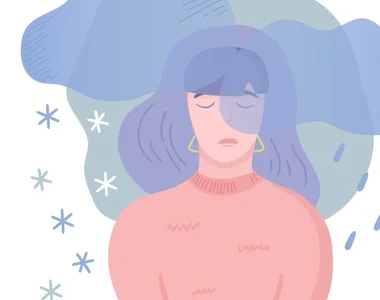
ADHD (attention deficit hyperactivity disorder) is one of the most talked about topics on TikTok, with many users sharing their experiences with the condition. Amidst the flood of information, it’s hard to separate fact from misinformation. So, below are some of the most valuable tips you can find on TikTok — and some myths you shouldn’t believe.
Fact: ADHD is not just a lack of concentration
Many people associate ADHD solely with difficulty concentrating, but the reality is much more complex. Almost every person with ADHD also faces difficulty regulating emotions, which in some cases can seem like a serious mood disorder.
Myth: ADHD is a superpower
There are those on TikTok who describe ADHD as a hidden gift—an ability to be creative and unstoppable. The truth is, while some people can use hyperfocus to their advantage, ADHD remains a challenging and exhausting condition. If they had the choice, many people with ADHD would rather not have it at all.
Fact: ADHD is not only diagnosed in children
There is a misconception that ADHD is a condition that only affects children and that disappears over time. In fact, symptoms can persist, become masked, or even worsen over time. Furthermore, many women and adults are only diagnosed after they have spent a large part of their lives not understanding why they have certain difficulties.
Myth: ADHD medications are addictive
Another common misconception is that ADHD medications are addictive. In fact, studies show that people with ADHD who do not receive treatment are more likely to develop addictions to various substances, as they struggle with impulsivity and poor decision-making. When used as prescribed, these medications are not addictive.
Fact: ADHD symptoms can be influenced by hormones
Many women with ADHD report worsening symptoms after puberty, during pregnancy, or during menopause. This is related to estrogen levels, which affect dopamine levels—a substance that the brains of people with ADHD don't process properly. This is also why the effectiveness of medications can change during these hormonal phases.
Myth: Psychiatrists are "drug dealers"
There is a long-standing prejudice against psychiatrists, seeing them as people who simply prescribe drugs without considering the patient's needs. In reality, most psychiatrists aim to help patients find the best treatment strategies, including both non-drug approaches and medications when necessary.
You can find a lot of valuable advice about ADHD on TikTok, but it's important to know how to distinguish facts from myths. The most reliable information comes from experts and people with real experience in this field, so always be careful what you believe and share with others.
Sources: Cosmopolitan







